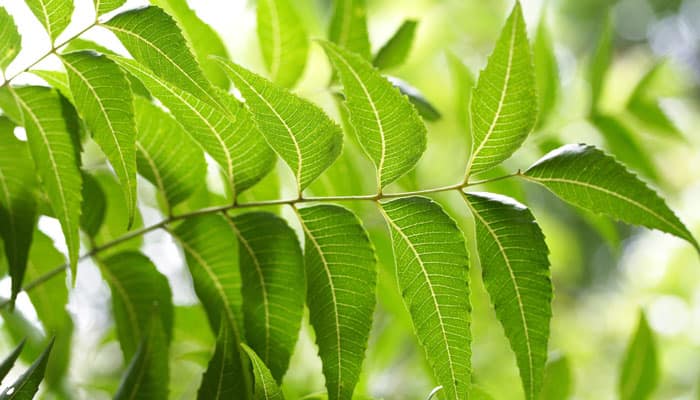Zee Media Bureau
Singapore: A study led by an Indian-origin scientist has found that consumption of a bioactive compound from Neem plant could significantly suppress the development of prostate cancer.
Nimbolide, a bioactive terpenoid compound derived from Azadirachta indica or neem plant can reduce the size of prostate tumour by up to 70% as well as decrease its spread by half.
Neem, also known as Indian Lilac is a medicinal plant native to the Indian sub-continent and has been an integral part of Ayurveda for the benefits associated with it. The uses and benefits of this medicinal herb include powerful anti-bacterial, anti-viral and anti-fungal properties.
Today, neem leaves and bark have been incorporated into many personal care products such as soaps, toothpaste, skincare and even dietary supplements.
"The study demonstrated that nimbolide can inhibit tumour cell viability -- a cellular process that directly affects the ability of a cell to proliferate, grow, divide, or repair damaged cell components -- and induce programmed cell death in prostate cancer cells," said Gautam Sethi, Associate Professor at the National University of Singapore (NUS).
The findings showed that oral administration of nimbolide for 12 weeks can reduce the size of prostate cancer tumour by as much as 70 per cent and decreased its spread by about 50 per cent, without exhibiting any adverse effects.
Nimbolide directly targets glutathione reductase - an enzyme which is responsible for maintaining the antioxidant system that regulates the STAT3 gene in the body.
This activation of the STAT3 gene has been reported to contribute to prostate tumour growth and metastasis, explained the researchers.
"We have found that nimbolide can substantially inhibit STAT3 activation and thereby abrogating the growth and metastasis of prostate tumour," Sethi added.
Prostate cancer is one of the most commonly diagnosed cancers worldwide, occuring in a man's prostate - a small walnut-shaped gland that produces seminal fluid. It is also one of the leading causes of cancer death among men of all races and Hispanic origin populations.
Prostate cancer often has no early symptoms and is mainly diagnosed in older men - about 6 cases in 10 are diagnosed in men 65 years or older.
Current therapies available for metastatic prostate cancer are only marginally effective.
The results of the study were published in the journal Antioxidants & Redox Signaling.
(With IANS inputs)
















